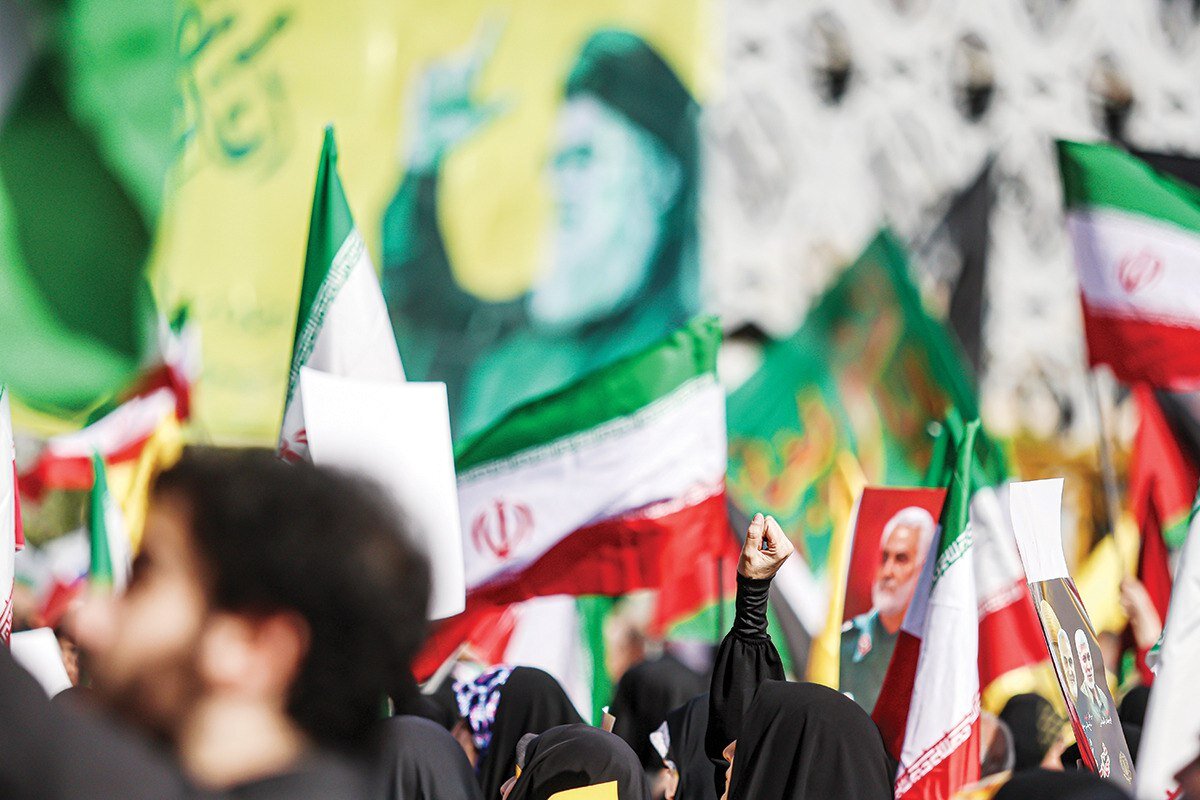Rising call for nukes
Unchecked Israeli aggression fuels Iranian public demands for nuclear weapons

TEHRAN – After a year of harrowing Israeli crimes decimating Gaza and plaguing the surrounding areas, it seems that the relatively small number of Iranian citizens who have advocated for the development of nuclear weapons since the inception of the country’s nuclear program are no longer ostracized.
Recently, an earthquake struck Iran's central Semnan region, prompting speculation on social media about the possibility of it being linked to a nuclear test by the Iranian government. Seismologists and Iranian authorities quickly dismissed these claims. CIA Director William Burns also said there is no evidence that Iran has decided to build a nuclear weapon, adding that the U.S. would figure out Tehran has changed its nuclear doctrine before the country manages to develop nukes. The rumor nonetheless, has sparked intense discussions among Iranians in recent days.
“I’m not going to lie, I was kind of disappointed when I heard it wasn’t a nuclear test,” said Ali, a 25-year-old nurse residing in Tehran. “I can't recall a time in my life when Iran wasn't under pressure for its nuclear program. We've endured decades of unjust sanctions. I don't understand why we haven't just developed nuclear weapons, since we've already paid the price for it anyway.”
Ali represents the younger generation of Iranians often criticized for their perceived fanaticism and lack of awareness regarding the risks of escalating tensions. Born after the 1988 conclusion of the Iran-Iraq war, which caused significant casualties and economic woes, he differs from those who experienced the conflict firsthand and tend to shy away from potential confrontations with the West and its proxies. Today, however, even the most dovish segments of Iranian society are starting to back the idea that Tehran should go nuke.
“I was very happy when we signed the Joint Comprehensive Plan of Action (JCPOA). I thought the dispute over our nuclear program had finally ended and that the West was finally going to embrace us,” said a 61-year-old retired teacher. “But nothing really changed. In fact, things began to look worse. The West left the deal and tightened its economic grip on us, and Israel is now threatening to strike our nuclear facilities. That’s while we have proven time and time again that we are not after nuclear weapons.”
The JCPOA, signed in 2015 between Iran and the P5+1 group of nations, was a deal that limited Iran’s nuclear program in exchange for the termination of Western sanctions. Washington withdrew from the pact in 2018, and its European allies, namely Germany, Britain, and France, began shunning their commitments despite remaining as official signatories. Since the U.S. left the nuclear pact, Tehran has been subject to more sanctions and economic pressure compared to when there was no JCPOA.
The collapse of the JCPOA has certainly reduced the stigma around nuclear weapons, but the primary driver behind the increasing number of Iranians favoring the possession of nukes is believed to be an unprecedented surge of Israeli violence and aggression in the region.
After pulverizing the Gaza Strip and gradually moving towards bombing Lebanon, Syria, and Yemen, Iranians are increasingly concerned about whether their country has enough deterrence to prevent Israel from repeating these actions against Iran.
While Tehran undeniably has far more sophisticated military capabilities than its regional counterparts, many speculate that it’s only a matter of time before Israel takes action against Iran as well. The regime has already taken the bold step of assassinating a prominent Palestinian leader on Iranian territory. Observers argue that there’s little reason to think Israel wouldn’t attempt to replicate its actions in Gaza against Iranians, especially since many of its politicians have already issued threats to do so.
“The issue of deterrence has always been of paramount importance in a volatile region like West Asia,” said Mahdi Khanalizadeh, a West Asia expert and scholar. “But in the wake of the past year's events, the concept of deterrence has transcended the realm of academic discourse and become a subject of contemplation not only for researchers and analysts but also for ordinary citizens,” he added.
Despite Israel's status as a nuclear power and Tehran's lack thereof, Iran has twice attempted to establish deterrence against Israel within the past year. Once in April when Israel attacked the Iranian embassy in Damascus, and once earlier this month in response to the regime’s assassination of Hamas’ Ismail Haniyeh in Tehran.
“Both operations against Israel, which involved the firing of hundreds of drones and missiles at the occupied territories, have been successful and Israel has decided to de-escalate in return. However, given the rogue nature of the regime, nobody knows if Iran will have to make similar decisions in the future. That’s why more and more people are thinking about nuclear weapons. Because Israel has them, and Iran doesn’t.”
A poll conducted between February 20th and May 26th by an opinion research firm based in Canada revealed that nearly 70% of Iranians supported the development of nuclear weapons. It is anticipated that this percentage has increased since then.
The desire for enhanced deterrence against Israel appears to be also resonating with the country's more influential and elite circles. In a recent interview, Hassan Khomeini, the grandson of the Islamic Republic's founder, emphasized the need for Iran to strengthen its deterrence capabilities. When questioned about the specific type of deterrence he had in mind, Imam Khomeini's grandson replied, “I’ll say this much for now.”
